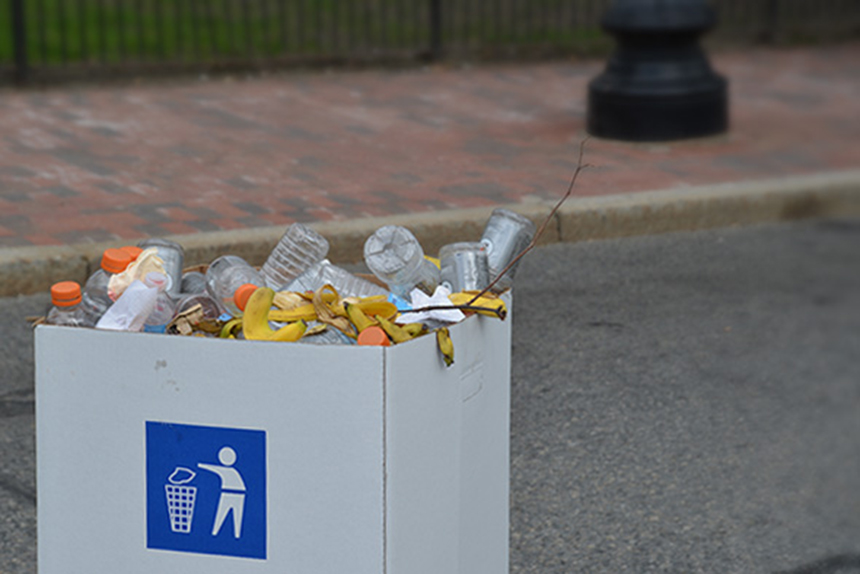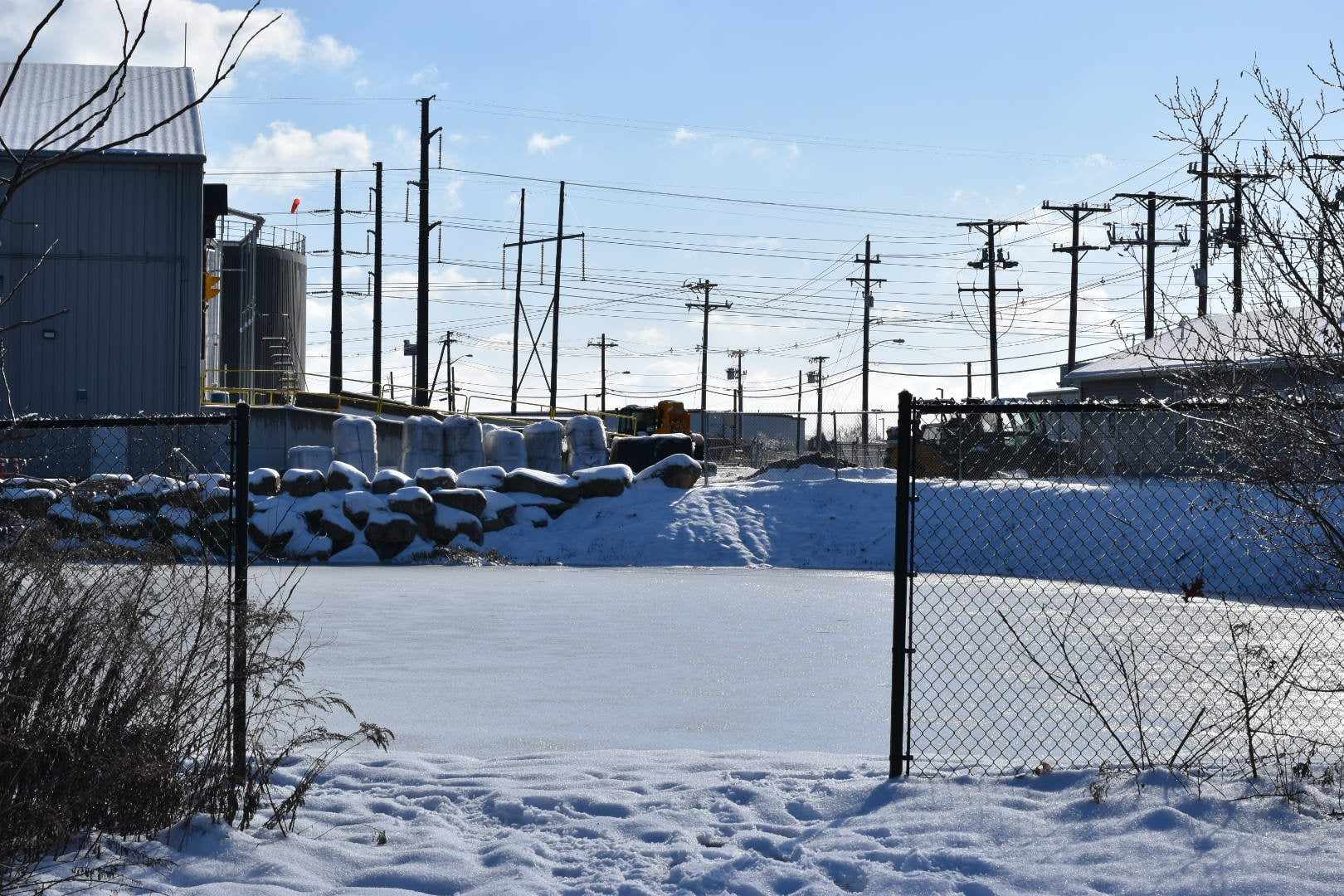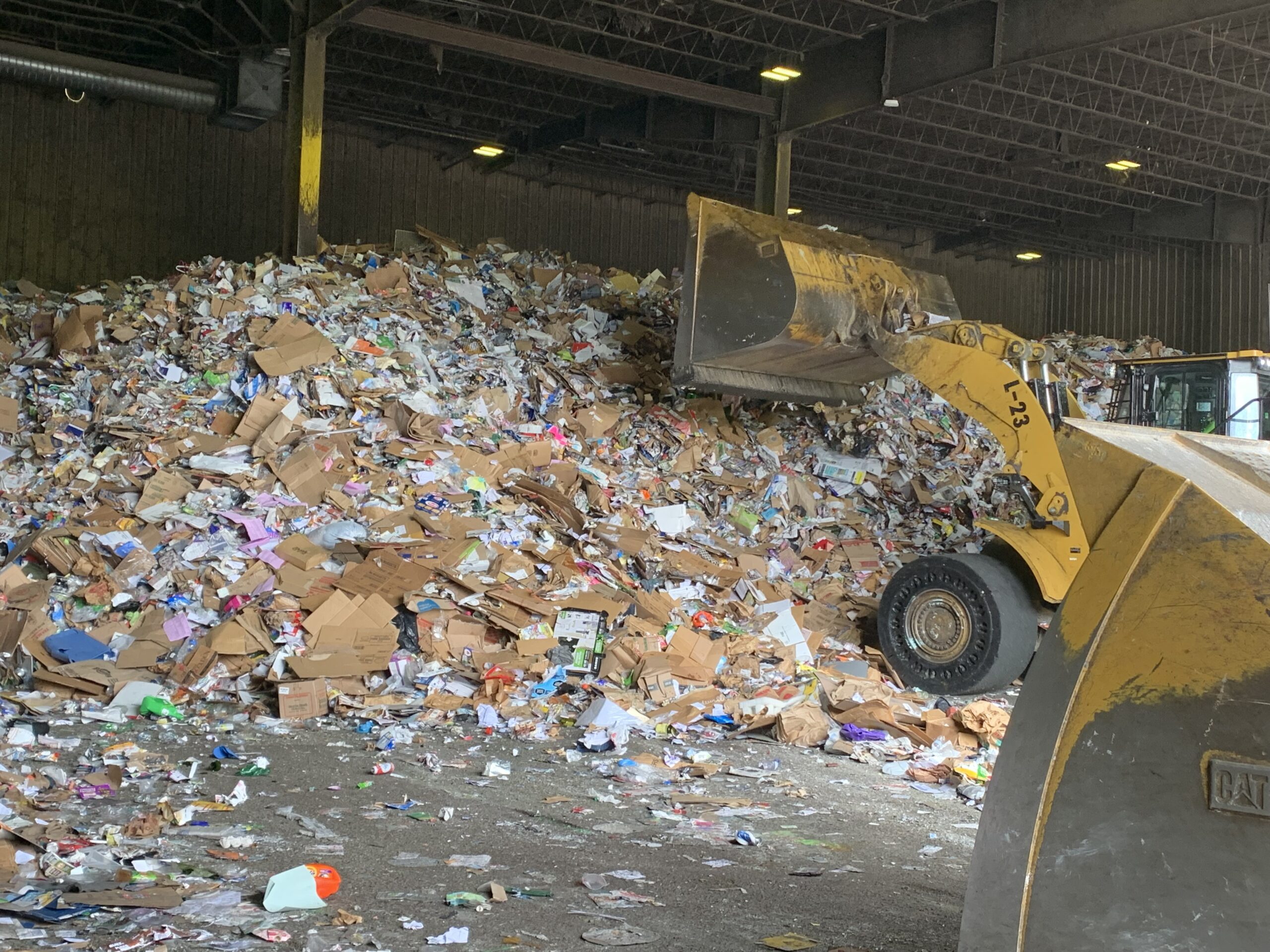Recycling Helped Make Society Disposable
August 15, 2013
Recycling has its merits, and it makes us feel good, but it does little to promote sustainability. It beats burying what we don’t want in landfills or burning it in incinerators, but it’s time we stop relying on this inefficient practice.
“Reducing and reusing are much more effective than recycling or even composting,” said Randi Mail, the passionate recycling director for Cambridge, Mass. “The recycling bin is the last resort before landfill and incineration. Even if we recycled everything that could be, it still wouldn’t be sustainable.”
We could begin to lessen the impact on the environment by reducing the amount of stuff we consume. Do we need to drink from Styrofoam cups or ship boxes packed with Styrofoam “peanuts”? Styrofoam discarded today will hang around for nearly five centuries.
Do we need to import petroleum-based plastic trinkets like unicorn horns for cats, electronic yodeling pickles, and Santa Clauses that defecate candy?
We could reduce the amount of electronics we blow through annually. In 2011, for example, 152 million mobile devices were discarded in the United States.
Even as we causally discard working phones for the latest technological fascination, we’re even more careless with the food we grow, buy and eat. In fact, food comprises the majority of material entering our landfills. Americans throw away nearly 40 percent of their food, according to the Environmental Protection Agency (EPA).
It’s a problem that is particularly upsetting to Mail. “We waste food at the farm, at the store and at home,” she said. “There’s waste up and down the food chain.”
The typical American family produces about 500 pounds of food scrap a year, but only 2 percent to 3 percent of U.S. families even compost. In Massachusetts, food scrap makes up nearly 21 percent of the waste stream.
“It’s frightening how much food is wasted in this country,” Mail said. “Blemished food is thrown out by grocery stores. There’s food left unpicked at farms because there are incentives for farmers not to pick everything. We need to change our habits.”
One way to do that, Mail said, is to check our refrigerators and pantries before we go food shopping, to eat food that is close to spoiling before we buy more. She also stressed the importance of learning canning techniques.
The city of Cambridge occasionally conducts food audits by going through collected municipal waste. Mail said she is routinely shocked by the amount of perfectly edible food thrown away. She’s found bags of apples, loaves of bread and even a half-carton of eggs mixed in with various forms of plastic, packaging and other tossed-out materials.
Instead of using reusable bags, every American, on average, uses more than 500 plastic bags annually. Instead of using reusable mugs, some 250,000 plastic bottles are thrown out every hour in the United States.
Reuse, though, shouldn’t be confused with recycling. Reuse means any activity that lengthens the life of an item. Recycling is the reprocessing of an item into a raw material for use in a new product. Reuse is nothing new; we’ve just forgotten how to do it.
Reuse is accomplished by purchasing durable goods, buying and selling in the used marketplace — Freecycle and Craigslist, for example — and attending to maintenance and repair. It means developing products that are capable of being remanufactured. It means not buying disposable stuff.
Reuse confronts the challenges of waste reduction. Rags and towels are more sustainable than the 13 billion pounds of paper towels Americans use annually. Reuse supports a productive economy, and it reduces the strain on valuable resources, such as fuel, forests and water supplies. This lost practice helps protect wildlife habitats, and it creates less air and water pollution than making a new item or recycling another.
In fact, the manufacturing of new plastic from recycled plastic requires two-thirds of the energy used in virgin plastic manufacturing, and recycled plastic often isn’t used for the same products over and over again.
Basically, recycling involves the use of additional energy and the outlay of additional expenses to convert old items into new ones. It’s an industrial process that collects used materials, and melts, smashes, shreds or otherwise transforms them into raw materials.
Recycling isn’t an environmentally benign practice. Recycling institutionalizes disposables and single-use items by treating them after they have been created. Recycling helps guarantee unnecessary items will continue to be manufactured.
When something is reused, there is no additional strain on the planet’s finite resources. No old-growth forests are clear-cut, no new wells are drilled in the Gulf of Mexico, no rivers are dammed, and there are no fleets of fossil-fuel-chugging trucks duplicating the routes already driven by garbage trucks to take recyclables to facilities that burn energy and emit pollution.
The practice of reusing gets lost in the politics of industry-supported “environmentalism,” because it preempts consumption. The recycling wave helped turn us into rampant consumers. It helped create a throwaway society, as if recycling somehow justifies buying a case of petroleum-based plastic bottles filled with tap water and carrying it out of the store in a plastic bag.
Recycling is helpful, but we can’t recycle our way out of disposability. It’s no absolution for our consumptive sins. Reduce and reuse are much more effective in taming our waste stream.
“We need to use less,” Mail said.
Categories
Join the Discussion
View CommentsRecent Comments
Leave a Reply
Your support keeps our reporters on the environmental beat.
Reader support is at the core of our nonprofit news model. Together, we can keep the environment in the headlines.
We use cookies to improve your experience and deliver personalized content. View Cookie Settings




Great piece.
We not only need to consume less, we need to produce less as that is what would really reduce pressure on ecosystems.
This article does a great job at revealing the miss consumption about how people automatically think that recycling is the best way to manage your left overs or trash. In truth, though the best way to environmentally help the earth is to reduce and reuse, which is much more effective then recycling. Many humans don’t realize this and this article provides a good intake on why we must cut back more and think twice before recycling.
It may be fashionable to look down on recycling. But you miss the point if you think recycling is about landfills. Recycling is the alternative to cutting down forests and mining mountains and coral reefs. Sure, reuse is great, but we need people to continue to participate in the recycling programs and recycling economy, and I fear the message conveyed casts doubt on those participants.